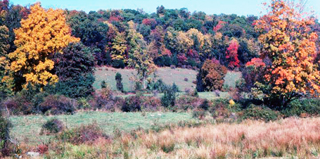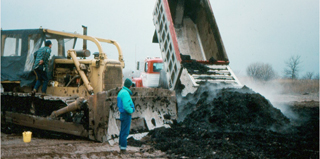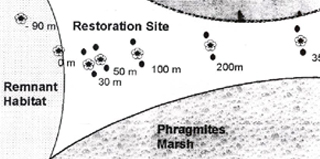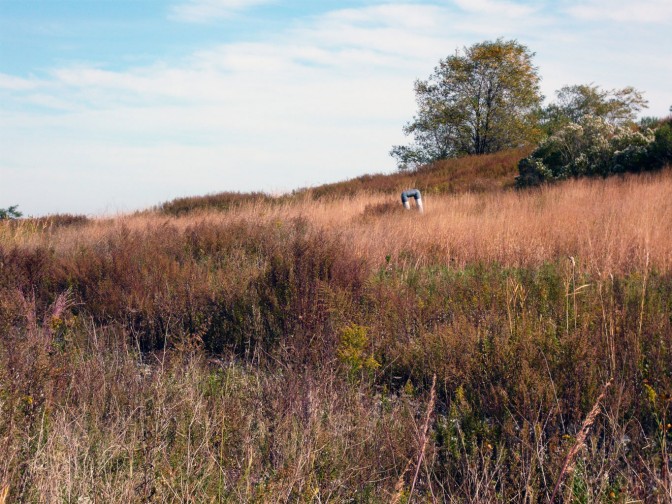Steven Handel on urban restoration ecology
For our Freshkills Park Talk two weeks back, Dr. Steven Handel shared insights into the emerging field of urban restoration ecology, which focuses on the challenge of bringing ecological diversity back to degraded lands like brownfields and landfills. He discussed his research at the Freshkills Park site and others in the region and went on to describe how his expertise has informed the design of Orange County, CA’s Great Park.
Much of his discussion centered around concepts of ecological sustainability. Some key takeaways: At a site as large as Freshkills Park, it would be costly and unsustainable to plant and maintain the type of landscape found in a more traditional park landscape like Central Park. Dr. Handel emphasized the bang-for-buck of planting small, pioneer clusters of trees and shrubs that could attract bees and birds, which act as pollinators and seed spreaders. He also detailed the value of mosaic plant populations, in which some species can thrive while others shrink in response to evolving conditions. In the face of climate change, this adaptability, he said, would be essential for park resilience over time.
The talk covered much more. We’re grateful to Dr. Handel and to the big crowd that came out to hear him speak. Below are a few audio highlights. Each is 3 to 5 minutes long.
 Clip 1: The “ecological services” and other benefits provided by green, sustainable landscapes.
Clip 1: The “ecological services” and other benefits provided by green, sustainable landscapes.
 Clip 2: On Dr. Handel’s soil restoration work in the New Jersey Meadowlands.
Clip 2: On Dr. Handel’s soil restoration work in the New Jersey Meadowlands.
 Clip 3: The importance of pollinators and the challenge of aligning engineering goals with ecological goals.
Clip 3: The importance of pollinators and the challenge of aligning engineering goals with ecological goals.




